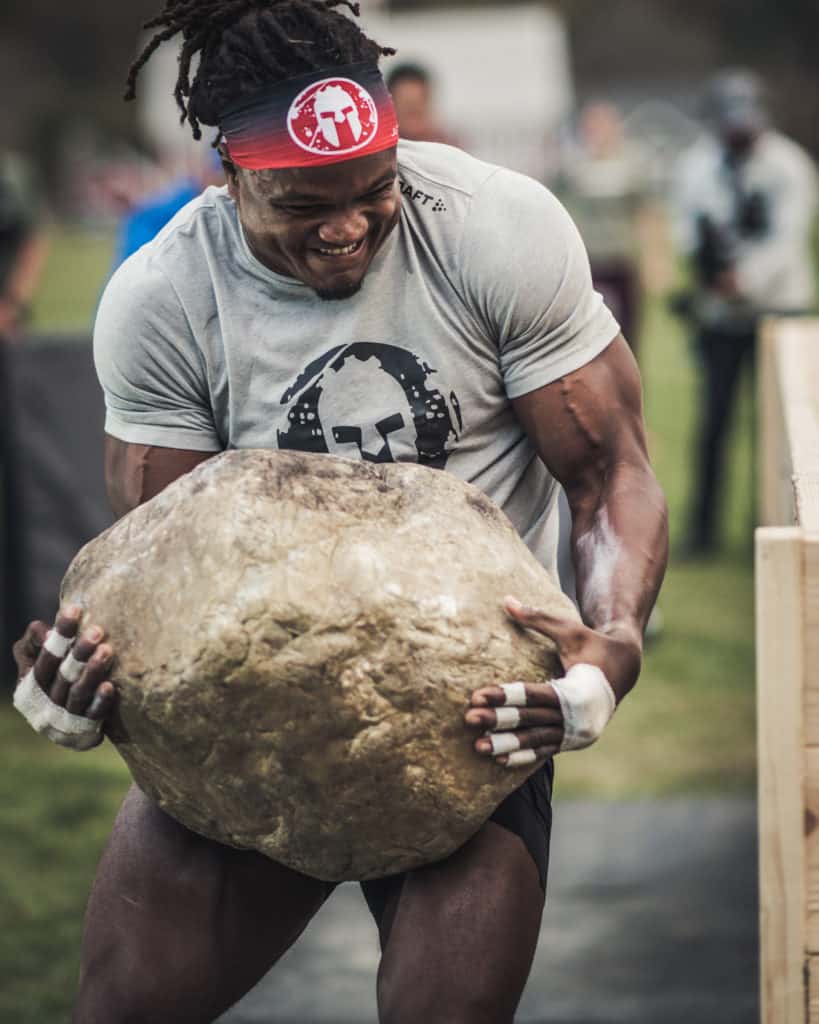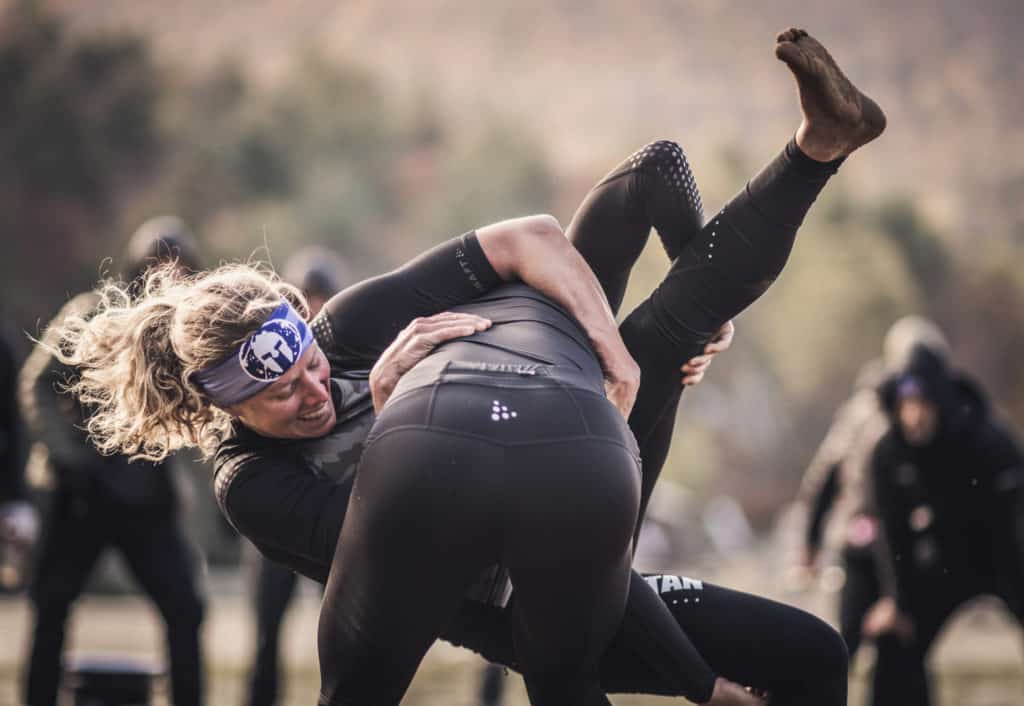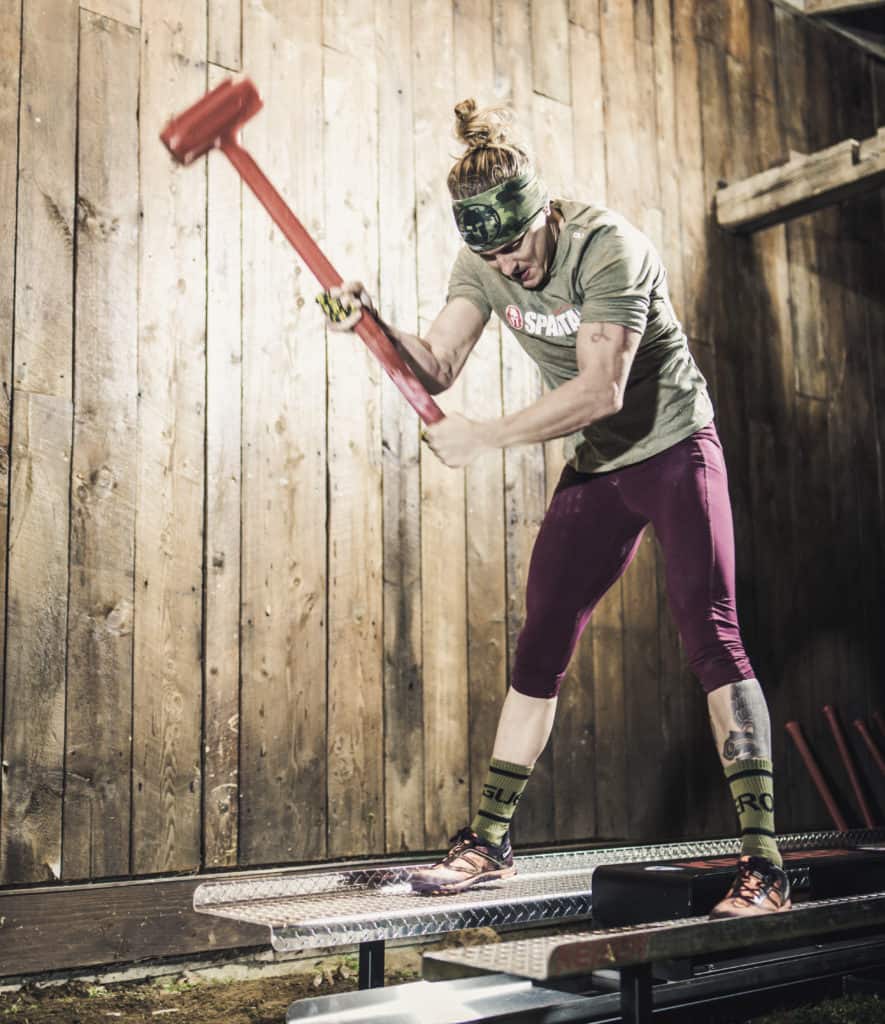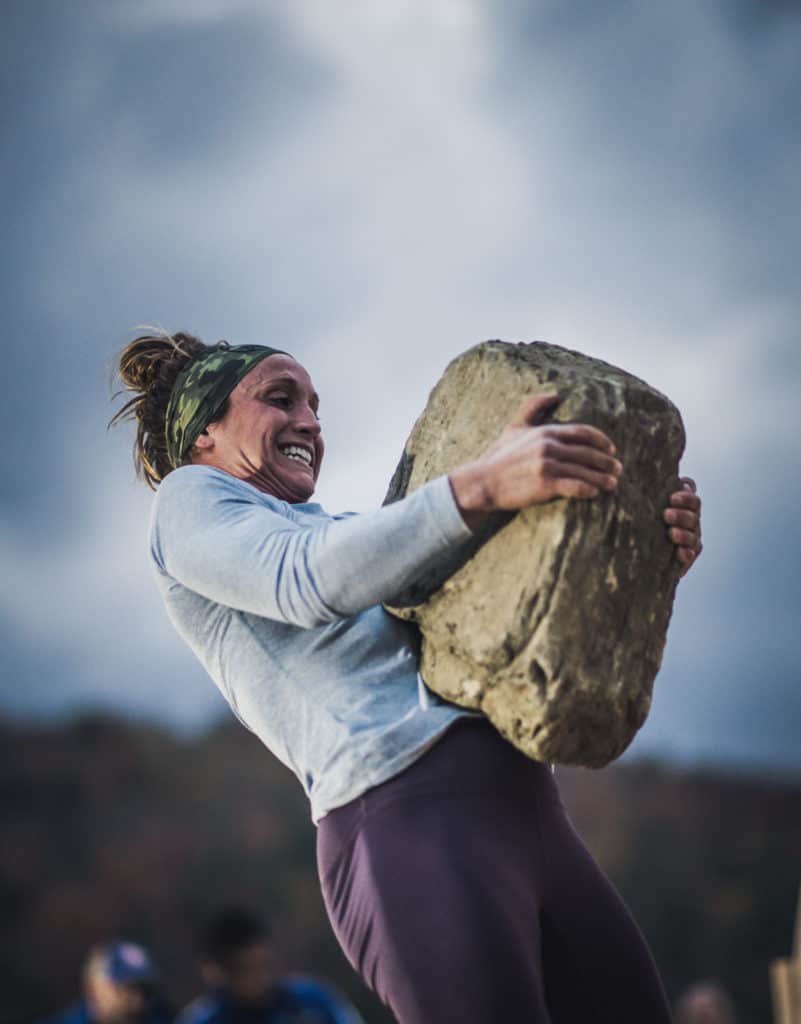
By Katy Savage
When the pandemic hit, Joe De Sena, the founder of Spartan Race, spent 120 days quarantined in the place where Spartan first began back in 2010.
De Sena retreated to his Riverside Farm in Pittsfield, which is called the birthplace of Spartan —the obstacle course race series, which has since expanded to include 250 events in 45 countries. While almost all of the races were canceled this year, De Sena was determined to make one work.
“I said I wanted to have an event on the farm and the team came up with this brilliant format,” De Sena said.
A group of 24 elite athletes from a variety of disciplines stayed in Pittsfield Oct. 9-13 to be part of a new Spartan television series.

The goal? “To see who’s the fittest of them all, what type of athlete, what type of mindset,” De Sena said in a phone interview.
The athletes included Curtis Maggitt, a former linebacker for the Indiana Colts; Kellyn Taylor, one of the fastest women marathoners in the nation; and Max Fennell, the first African American pro triathlete, among others..They competed in Spartan obstacle course racing, long-distance trail running, mountain biking, swimming, and more for the chance to win $100,000.
The four-part series, called the Spartan Games: Battle of the Fittest, presented by Harley-Davidson, will air on Spartan’s YouTube channel in December. The show will capture the competition, the rivalries and the challenges the athletes face as they eat, sleep and compete together. It’s one way of keeping the Spartan spirit alive in the age of social distancing.
“It’s showing the community there’s going to be a light at the end of the tunnel,” said Jonathan Fine, Spartan’s head of global brand communications.
Like other event companies, Spartan has been hit hard by the Covid-19 pandemic. About 75% of the company’s 500 employees have been furloughed and Spartan has lost more than $100 million.
De Sena said, “We’re in the business of social un-distancing … we’re in a bit of a grind and a mess right now.”

The Pittsfield competition was one of just two events Spartan has held in the United States since the pandemic. A Spartan sprint was held in Jacksonville, Florida in June. This year is a big change for Spartan, which typically brings together a total of 1.2 million athletes a year.
“[The athletes] have dedicated their lives to the sport and the sport just doesn’t exist right now,” De Sena said.
Spartan has expanded its digital offerings. Virtual races, online nutrition programs and workouts have become part of Spartan’s focus, with 100,000 participating online events this year, but it’s not the same as racing together in person.
Fine said the television series is one way of keeping the community together. “It’s a community in every sense of the word,” Fine said. “Everyone lifts each other up and they stay very connected. The community is anxious to get back out on the race course. It’s definitely had a negative impact.”
The series highlights 12 female and 12 male athletes. All of them stayed in Pittsfield under strict rules for the series. They had to quarantine prior to coming, had to test negative for Covid-19 and couldn’t leave the farm.
The rules applied to athletes and staff, including De Sena, who was stuck at his home in Boston because he didn’t get a negative Covid-19 test in time to be at the farm.
As Spartan shifts toward a digital focus, De Sena, who is also a founder of the Endurance Sports Coalition, is lobbying congress for funding.

“Without specifically targeted help from the federal government, Endurance Sports may not survive the Covid-19 pandemic,” the coalition’s website states. “Many events with long and proud histories do not have the resources to weather this storm and will not be able to ramp up again next year.”
“Right now there’s just a standstill,” De Sena said.




